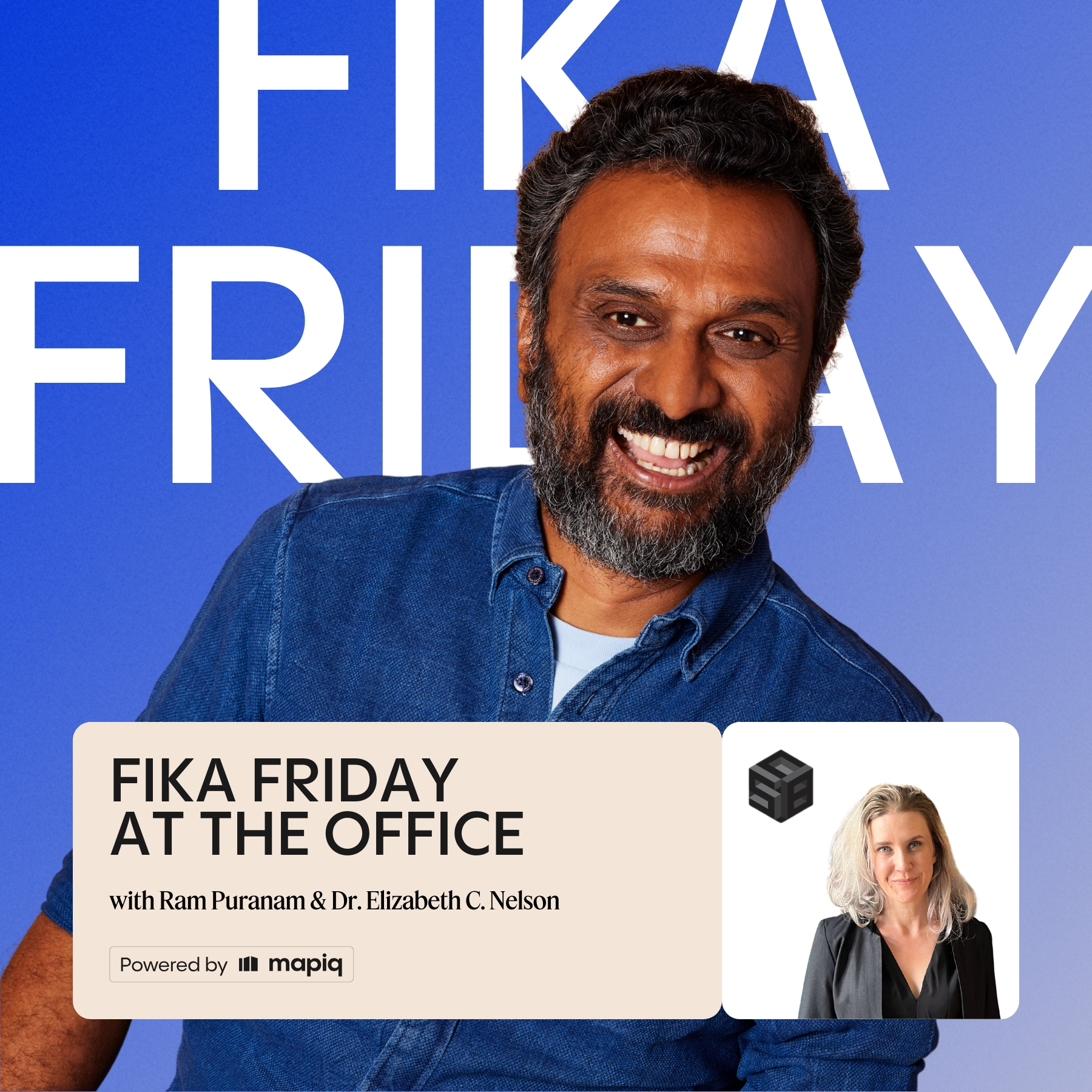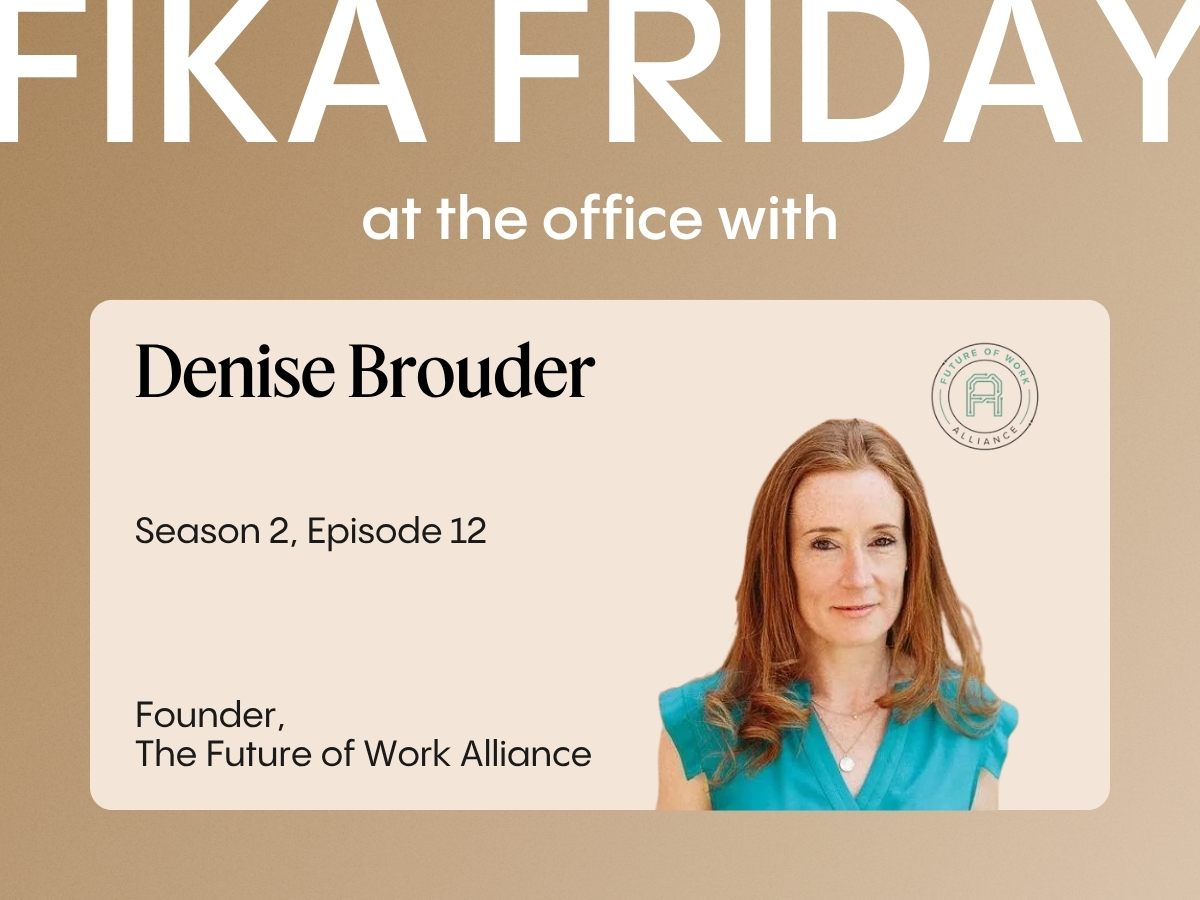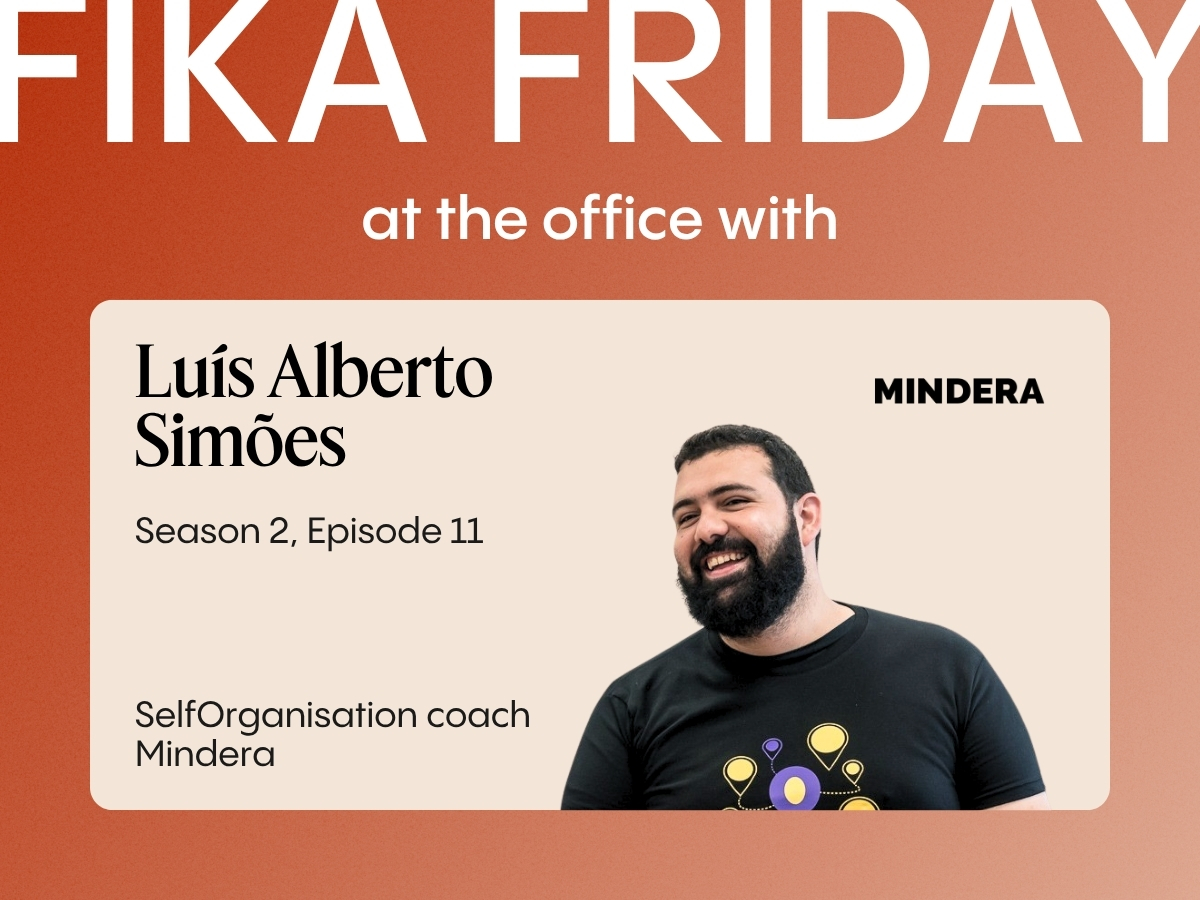
When you oversee workplace operations across 68 countries, you don’t just think in terms of desks and meeting rooms. You think in movement, culture, behavior, and purpose. That’s exactly what Luis Morejon, Head of Global Workplace Operations at Uber, brings to the table.
I met Luis during one of his brief pauses between site visits. He’s been on the ground in Uber offices across three continents, and yet his focus remains surprisingly human: why do people still come to the office at all? His answer is simple: to connect.
“The most important perk in the office is the human being. You come to see your colleagues. That’s the reason you’re there.”
This episode of Fika Friday at the Office is a deep dive into how Uber is rethinking space. Luis talks about everything from AI tools to chai stations, but it all circles back to one thing: people.
Designing for Longevity, Not Just Headlines
Luis and his team are designing Uber’s workspaces with the long game in mind. “The decisions we make today need to support the coming years as well,” he told me. In a world chasing trends, Uber is focused on infrastructure that evolves with people.
Rather than rushing to reinvent the wheel, they build with the assumption that change is constant. That’s how you future-proof a space, not by guessing, but by staying adaptive.
Let Behavior Shape the Space
One of Luis’s key philosophies is that design should follow behavior. “What you do shapes the space you need,” he said. “And that can change throughout the day.”
This means creating layered environments: quiet zones for deep focus, open areas for collaboration, social corners for casual connection. It’s many spaces for many moments.
Motivation Over Mandates
At a time when companies are still trying to “get people back,” Luis shared something rare: Uber offices are full by choice.
In Amsterdam and San Francisco, Fridays are often the busiest days. That doesn’t happen by policy. It happens because teams feel engaged. The physical space supports their goals, not the other way around.
AI Is Changing How Space Is Managed
Luis is already piloting AI tools to improve the way offices function. From occupancy tracking to cafeteria flow to meeting room usage, data helps his team respond faster, and smarter.
“AI helps us make better decisions, but it’s the people using the data that really matter.”
The future workplace, he believes, will balance technology with intention, spaces that adjust, anticipate, and evolve in step with the people inside them.
Hybrid Didn’t Start in 2020
One thing Luis made clear: flexible work has been around longer than we think. “I stopped using a private office around 2005,” he told me. COVID didn’t invent hybrid work, it just accelerated it.
What’s changed is our awareness. Companies are now designing for flexibility on purpose as a new baseline.
Collaboration Still Loves the Office
Luis doesn’t dismiss remote tools, but he’s honest about their limits. “You can have a screen and a good Wi-Fi connection at home,” he said. “But many things still happen faster when people are together.”
From mentoring to spontaneous problem-solving, the office still provides something digital can’t replicate: shared momentum.
Building Offices for People and for the Tech They Use
In the end, Luis’s vision is about balance: human connection meets smart design. The future office is a hybrid of tools, teams, and technologies, all working together in one evolving ecosystem.
“We’re building around the idea that people and technology will share the office. Both will need room to thrive.”
Final Thoughts
Luis Morejon sees office design not as a formula to perfect, but as a rhythm to respond to. He’s not building for “return to office.” He’s building for why people come in at all to belong, to build, to collaborate, to grow.
His leadership is subtle but clear: listen to behavior, respect culture, and design with care.
This conversation reminded me that the most meaningful workplaces aren’t necessarily the flashiest, hey’re the ones that make people want to return. Not because they have to. But because something better happens when they do.
Listen to the full episode with Luis Morejon and learn how Uber is rethinking the role of the office — one city, one culture, and one team at a time. Catch Fika Friday at the Office wherever you get your podcasts.




